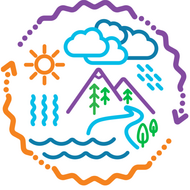Early Learning Climate Science (Pre K-K) Canvas Commons
(View Complete Item Description)In the 2018-2019 school year, Northwest Educational Service District 189 brought together a design team of six Pre Kindergarten - Kindergarten educators through a ClimeTime grant to find play-based, and engaging ways to teach climate science to early learners. This course shares out the findings of the team, including some work around designing for equity and 3-Dimensional Next Generation Science Standards (NGSS) alignment. You will engage in activities to use with students including a puddle walk, soil permeability tests, and lesson examples. Phenomenon based lessons will be shared as well as a list of resources and recommended books compiled by our design team.
Material Type: Activity/Lab, Module, Reading, Teaching/Learning Strategy




















